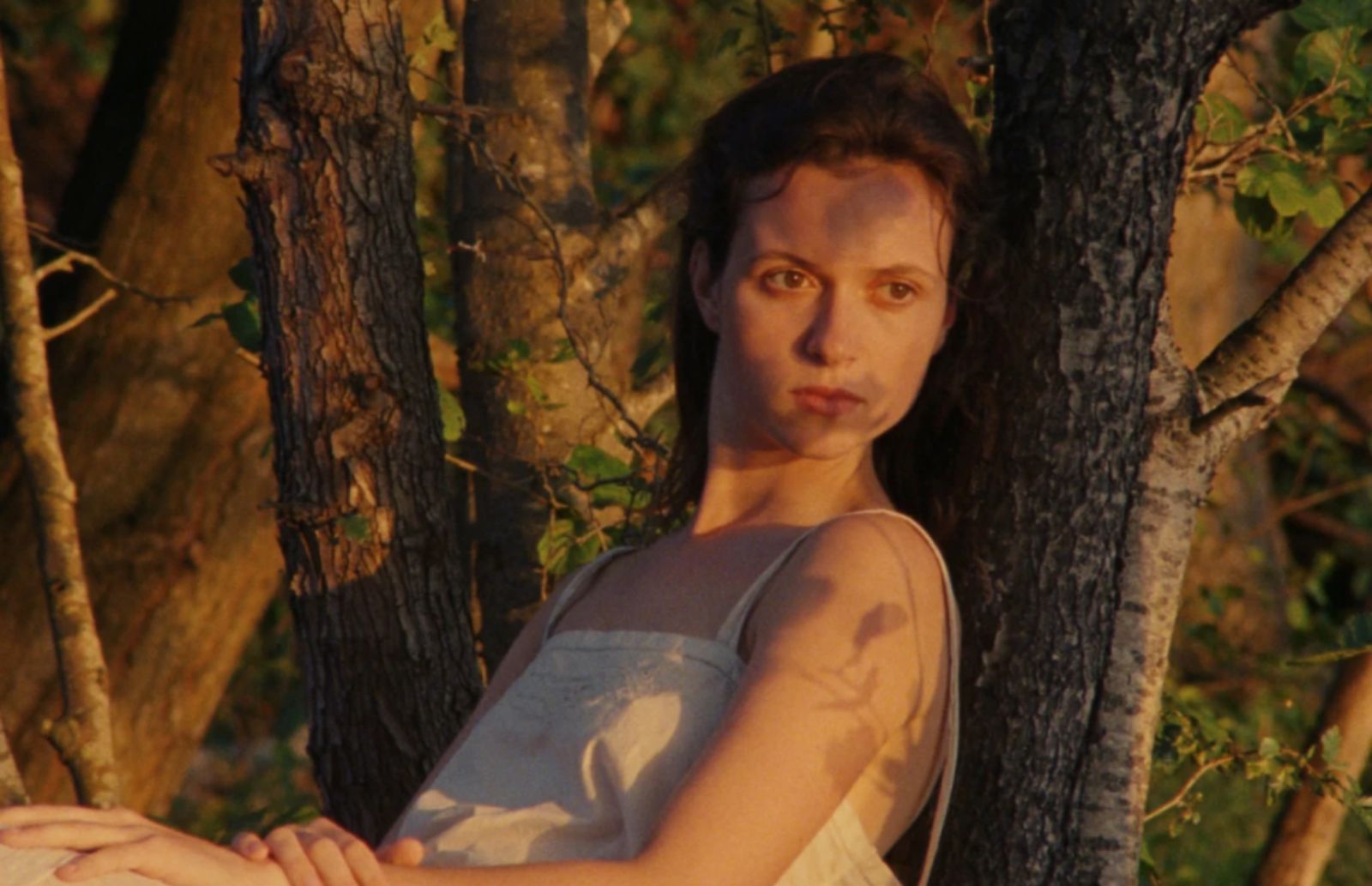In his previous film Martin Eden, and now with Scarlet, Pietro Marcello has found a novel way to depict artistic striving, closely tying it with the concept of labor. It’s also something that runs through Jim Jarmusch’s Paterson, about the poetry-penning bus driver of the same name: both filmmakers have helped demystify our idea of the artist as a potential “great man of history” and the deification often accorded them. The would-be literary maven of Martin Eden and two artist-craftsmen of Scarlet are engaged instead in a noble struggle, a bit like the eternal workers’ struggle of Marcello’s other chief interest: that of leftist political thought.
Scarlet, a quasi-fairytale adapted from Russian author Aleksandr Grin’s Scarlet Skies, is a more even-tempered work than Martin Eden, and less likely to command the same ardor directed towards that film (especially regarding Luca Marinelli, its charismatic leading man). But it finds Marcello acing another high-end literary adaptation, that mode which can sometimes starch the passion of our best directors. Relying less on archival inserts this time, Marcello opts to create a world built from the ground up, incarnating rather than just suggesting a fairy-tale, in a pastoral setting that can be further bent to a director’s will, knowing as we do the costly business of mounting a convincing period film.
A filmmaker deeply indebted to tradition and the past, but absolutely never in a reactionary manner, Marcello also has a more sincere interest in classical narrative than many of his peers. We see this again in Scarlet’s decades-spanning plot, evoking many a baggy 19th-century novel (though Scarlet Skies was first published in 1923). Raphaël (Raphaël Thiery, a great cuddly bear of a man, seen in Alain Guiraudie’s Rester Vertical) has arrived home from France’s World War I campaign to find his dear wife having died, leaving him a widower and single father to his sole daughter Juliette. We never find out much about Raphaël’s war experiences, though he’s clearly nursing a post-traumatic stress condition; in the spirit of the rest of the film, his trajectory is all about looking forward, not just to further skilled work, but the coming promise of the 20th century. He manages to gain sporadic employment in woodworking, his chosen field, and has especially deft skills; Marcello, with a certain romanticism, considers him a true artist in spirit.
Raphaël decides to raise Juliette with the eccentric Adeline (the great Noémie Lvovsky), who looked after her in infancy while the former was in the military. Juliette grows up (played by newcomer Juliette Jouan as an adult) with some of the same abilities as her dad, pursuing work as an artisanal toymaker, but with her modest socio-economic background, and the autodidactic manner in which she learned her craft, real career growth is unavailable. In an environment infused by magic, not forgetting Adeline’s own claims to be a sorceress (and a singing one at that), Juliette is promised by an old river crone (Yolande Moreau) that she will soon glimpse a ship with scarlet sails careening through the sky.
In the film’s final act, this foretelling is mirrored by the presence of Louis Garrel as a charismatic and arrogant young aviator, another upwardly mobile striver who Marcello still views with a certain tenderness. He completes a triad of himself, Juliette, and Raphaël––all of whom are enchanted by their impossible dreams, their work valuable especially for being created in this milieu of other people’s ignorance and misunderstanding. And here is what it means to be a real artist, Marcello seems to be saying.
The film’s resonance with the wider proletarian struggle, for workers’ recognition and dignity, gains credence for bubbling below the surface rather than being overstated. Yet Scarlet lacks the electricity of Martin Eden, which really came at the right moment, as a new generation was discovering the socialist ideas shunned by their Western elders who grew up in the Cold War, not to mention the glamor it could hold. But with a work like Scarlet, so gossamer-airy and enchanting that it could almost be family-adjacent viewing like Petite Maman, we are witnessing Marcello in a mercurial, mid-career stage, watching his sensibility truly take shape.
Scarlet premiered at the 2022 Cannes Film Festival.

